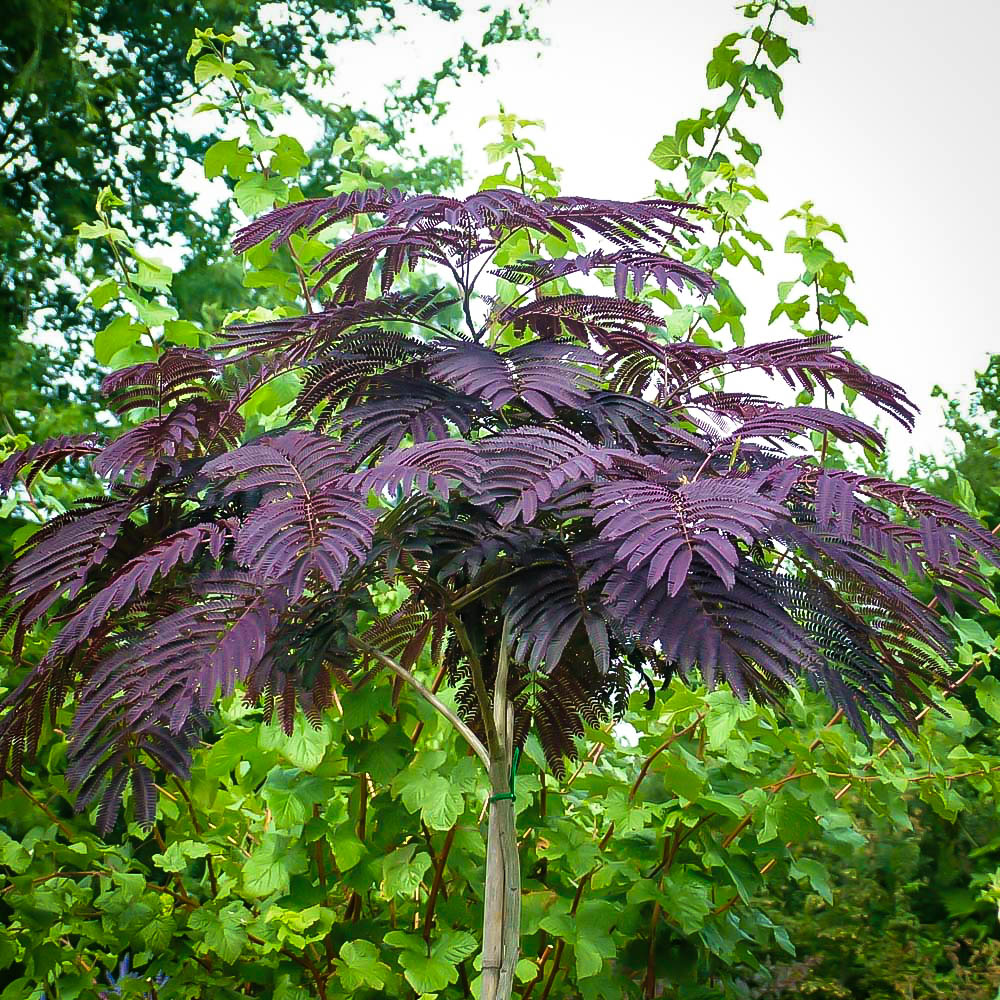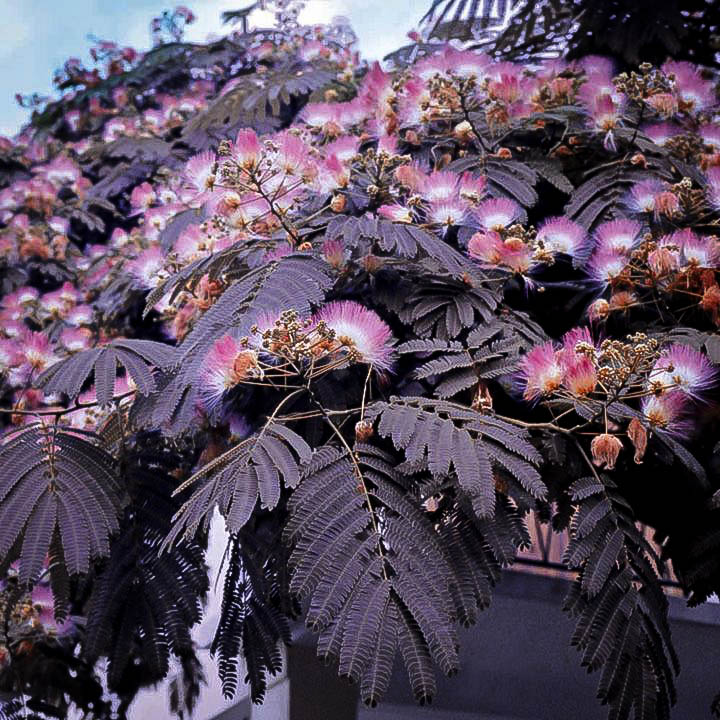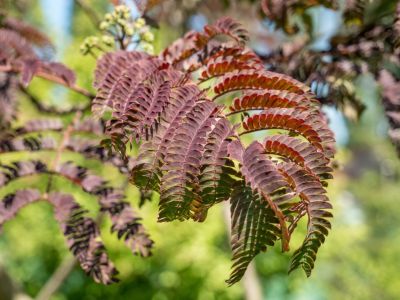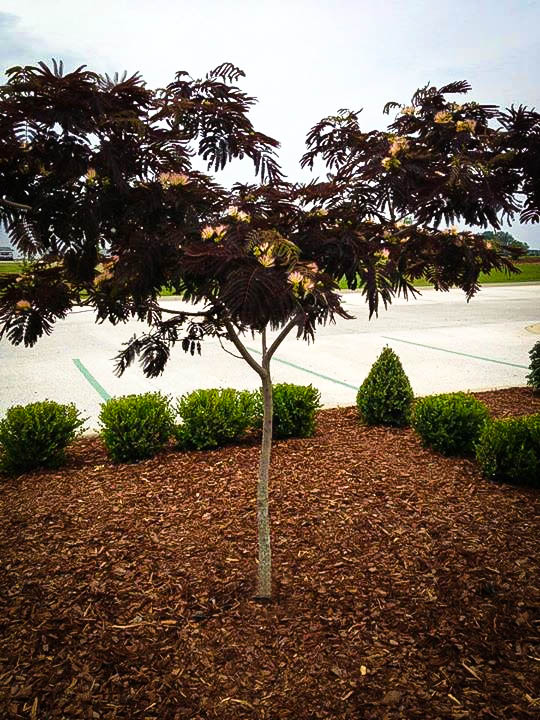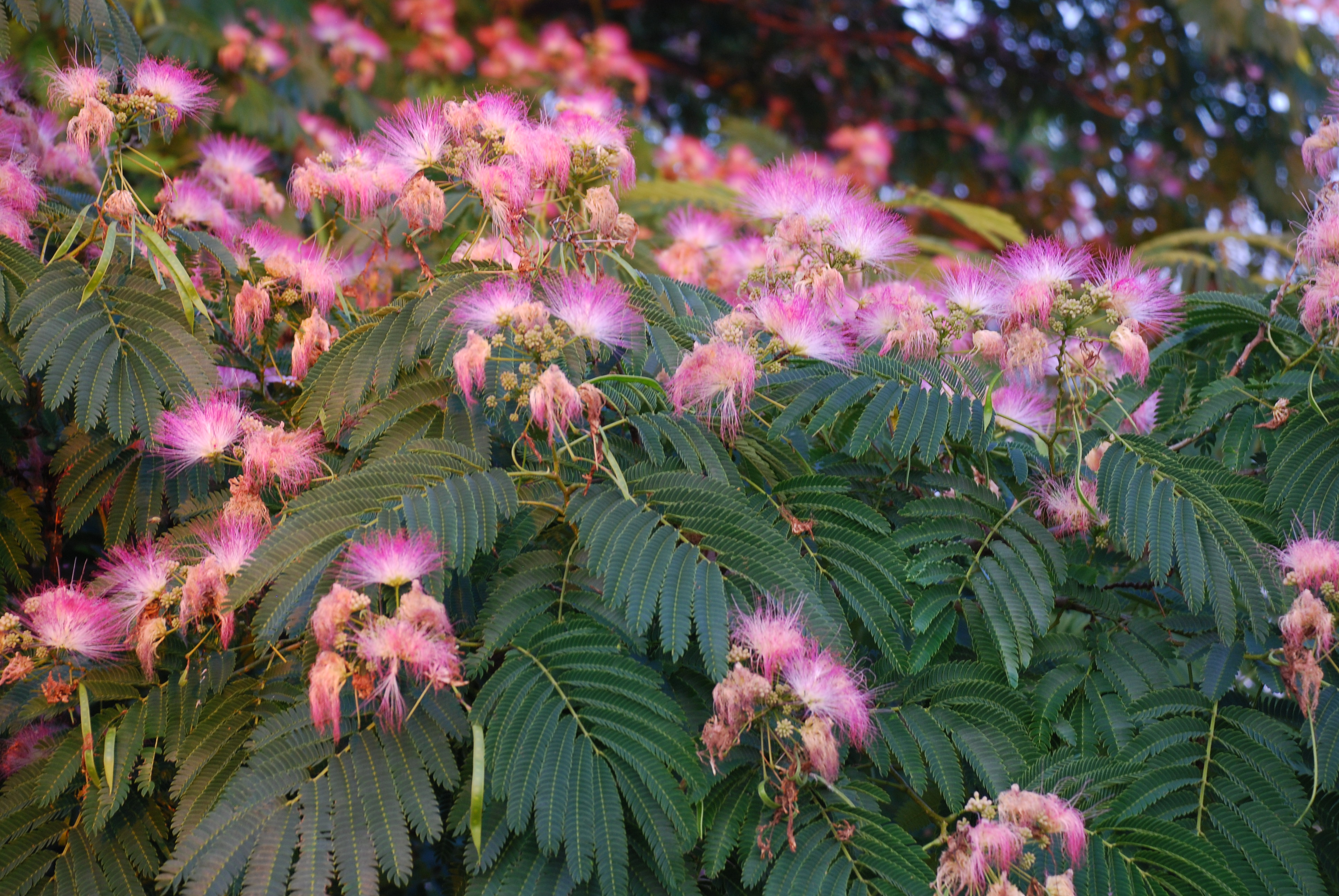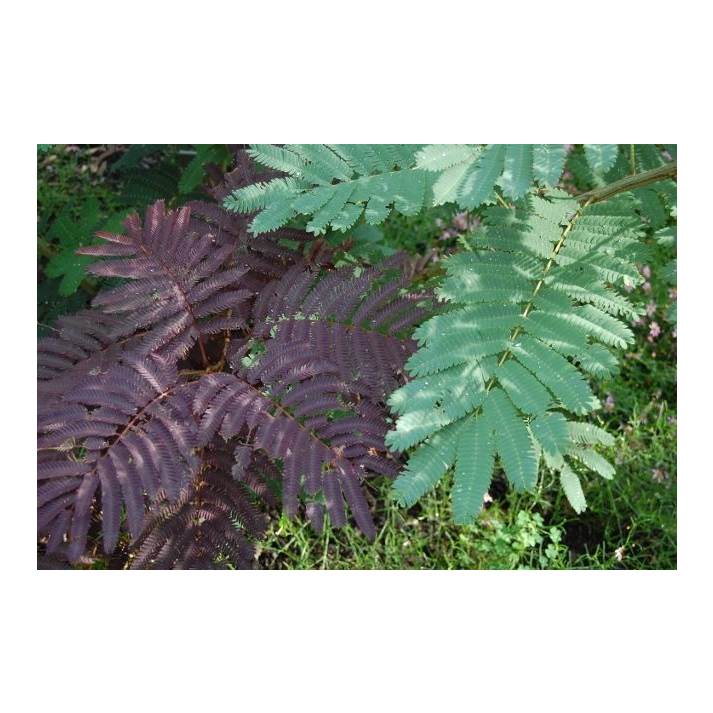Supreme Chocolate Mimosa Tree Invasive
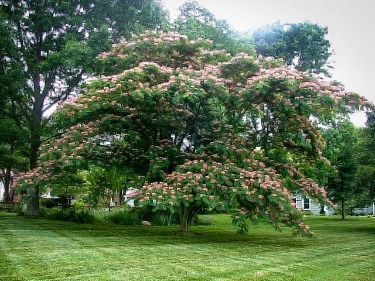
Hi I have admired the chocolate mimosa tree for a couple of years now however I read that mimosa trees can be invasive.
Chocolate mimosa tree invasive. It has been widely planted in the U. It in a very short time shades large areas in the landscape which inhibit sun-loving shrubs and grasses. Seed pods litter both the tree.
Just visit the Daves Garden Plantfiles entry for Albizia julibrissin to discover the full gamut of opinions about this tree ranging from glorification to near-loathing. Mimosa Is a Major Invasive The tree is an opportunist and a strong competitor to native trees and shrubs in open areas or forest edges. In fact its known for attracting the right things while deterring the wrong.
The seeds from chocolate mimosa sprout like standard mimosa. This fast growing deciduous tree has a wide umbrella shaped canopy with beautiful bronze-green fern-like leaves appearing in late spring. It isnt much more if any at all more invasive than it is in my area.
After being brought to this county. It produces prolific crops of. Due to its ability to grow and reproduce along roadways and disturbed areas and its tendency to readily establish after escaping from cultivation mimosa is considered an invasive plant and not recommended for any use by the IFAS Assessment.
The foliage deepens to a rich chocolate-burgundy color in summer and is adorned by delicate pink pincushion-like blooms in late summer. The Mimosa Tree has several cultivars that have become popular including the Summer Chocolate and Ishii Weeping. I just saw a few chocolate mimosas the other day for sale at a local nursery.
The biggest downside of the mimosa is its invasive potential which is well-documented throughout the southern states and parts of the West Coast. Albizia julibrissin commonly called mimosa or silk tree is a fast-growing small to medium sized deciduous tree that typically grows in a vase shape to 20-40 tall with a spreading often umbrella-like crownIt is native to Asia Iran to Japan. Mimosa is not recommended by UFIFAS.
